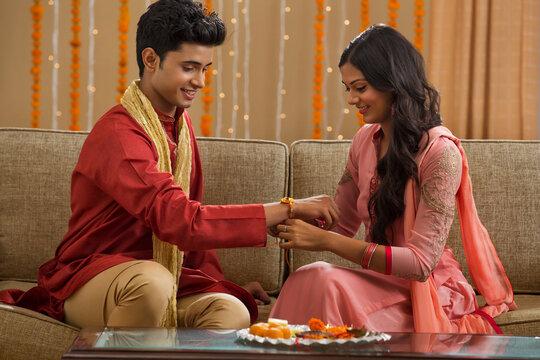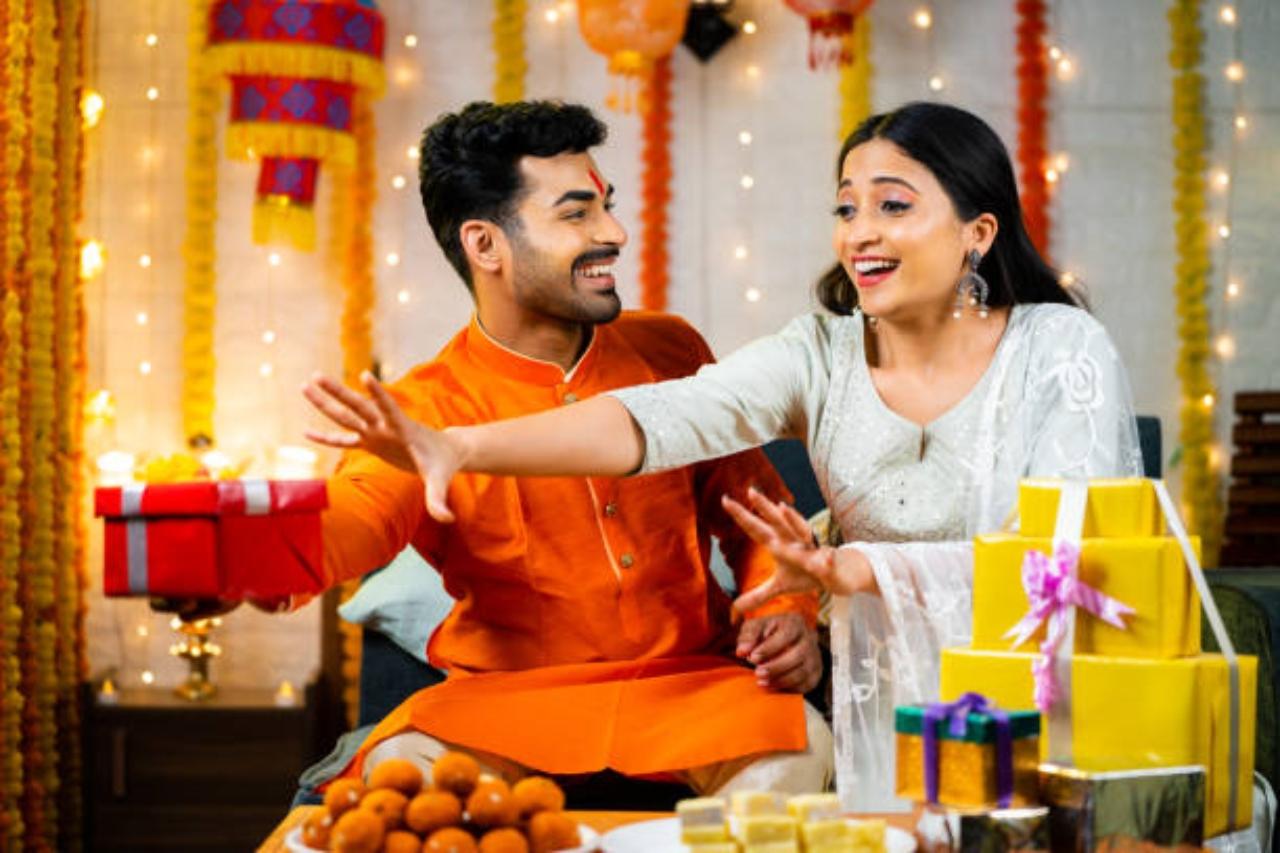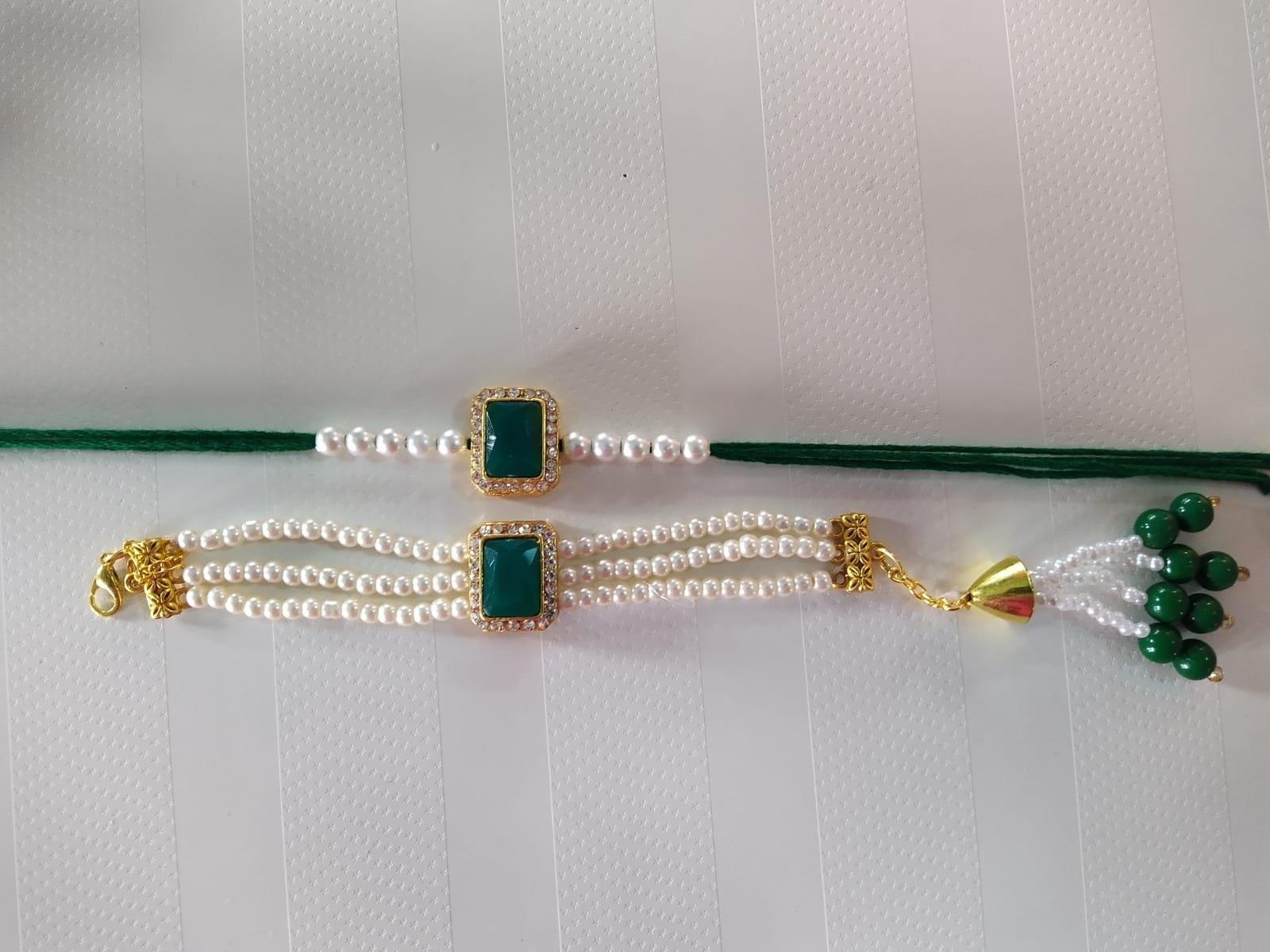Tagged: bahan, bandhan, bhai, culture, Dharma, festivel, hindu, hinduim, pavitra, rakhi, raksha, rishta, sanatan
- This topic has 0 replies, 1 voice, and was last updated by .
-
AuthorPosts
-
March 25, 2024 at 1:08 pm #1953Up::15
Raksha Bandhan, also known as Rakhi, is a beautiful Hindu festival that epitomizes the unique bond shared between brothers and sisters. Celebrated with immense joy and fervor across India and among Hindu communities worldwide, Raksha Bandhan holds deep cultural and emotional significance. This annual event is more than just tying a thread around the wrist; it’s a reaffirmation of love, protection, and commitment.

Bond of Protection
The term “Raksha Bandhan” translates to “the bond of protection.” On this day, sisters tie a sacred thread called a “rakhi” around their brothers’ wrists, symbolizing their love and prayers for their brothers’ well-being and protection. In return, brothers pledge to protect their sisters and offer them gifts as a token of love and appreciation.
Cultural Tradition
Raksha Bandhan is deeply rooted in Indian culture and tradition. It has been celebrated for centuries and is a significant part of Hindu mythology and folklore. The festival reflects the values of familial duty, respect, and mutual affection that are integral to Indian society.
Symbol of Sibling Love
Raksha Bandhan celebrates the unique bond between siblings. It is a day to cherish the lifelong relationship of love, trust, and companionship shared between brothers and sisters. Regardless of age or distance, Raksha Bandhan strengthens the bond and fosters a sense of unity within the family.

Historical Significance
The historical origins of Raksha Bandhan can be traced back to various legends and stories. One famous tale is that of Queen Karnavati of Chittor, who sent a Rakhi to the Mughal Emperor Humayun, seeking his help to protect her kingdom from invaders. Touched by her gesture, Humayun immediately set out to her aid, thus highlighting the protective aspect of the festival.
Promotion of Harmony
Raksha Bandhan transcends religious and cultural boundaries, promoting harmony and unity among people. It is not uncommon for people of different faiths and communities to participate in the celebrations, exchanging Rakhis as a symbol of friendship and goodwill.
Modern Adaptations
While traditionally Raksha Bandhan involves the exchange of Rakhis between brothers and sisters, the festival has evolved over time. Today, it is also celebrated among cousins, friends, and even colleagues, emphasizing the broader concept of brotherhood and sisterhood.

Jaipur, often referred to as the “Pink City,” is renowned globally for its expertise in gemstone craftsmanship. The city has a rich tradition of jewelry making that spans centuries. Artisans in Jaipur are highly skilled in cutting, polishing, and setting gemstones into intricate designs, showcasing their mastery in the craft. This expertise is reflected in Jaipur’s stone rakhis, which feature a stunning array of precious and semi-precious gemstones, meticulously arranged to create visually captivating designs. The stone rakhis from Jaipur not only serve as tokens of love and protection during Raksha Bandhan but also highlight the city’s legacy as a center of excellence in gemstone artistry.
Conclusion
Raksha Bandhan is more than just a festival; it’s a celebration of the beautiful bond shared between siblings and loved ones. As we come together to honor this sacred tradition, let us reaffirm our commitment to protect and support each other, not just on this auspicious day but every day of our lives. May the spirit of Raksha Bandhan inspire us to cherish our relationships and spread love and harmony wherever we go. Happy Raksha Bandhan!
Attachments:
You must be logged in to view attached files. -
AuthorPosts
- You must be logged in to reply to this topic.